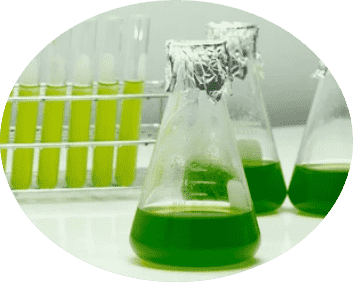Plant Cell Suspension-Based Protein Production
Plant cell suspension-based protein production is a technology that utilizes plant cell suspensions as a production platform to synthesize various proteins, including recombinant proteins, antibodies, vaccines, and other biologics. Protein production from plant cell suspensions has multiple advantages, such as lower cost, higher yield, and environmental friendliness, and thus has received extensive attention from researchers in the life sciences.
Lifeasible has many years of experience serving plant-based systems for protein production, and we continue to optimize our plant suspension cell protein expression platform to provide even better protein production services. We can provide a one-stop service from vector construction, plant cell transformation to protein expression and purification.
Features of Plant Cell Suspension-Based Protein Production
- Wide range of expression capabilities. Plant cell suspension-based protein production can produce a wide range of complex glycosylated proteins, some of which are difficult to produce in mammalian, bacterial and yeast cell systems.
- Reduced production costs. Using flexible polyethylene disposable bioreactors designed and optimized for plant cell culture is easier to use than some traditional reactors, with low capital investment for efficient scale-up.
- Biologically optimized properties. The inherent ability to improve the biokinetics of expressed proteins by means of genetic engineering and chemical modification enables the development of proteins with superior characteristics.
- Safe and non-contaminating. Plant cells provide a natural barrier to human and animal pathogens, eliminating the risk of mammalian virus transmission or infection.

Our Service for Plant Cell Suspension-Based Protein Production
Gene introduction and expression vector construction
We utilized Agrobacterium-mediated transformation, gene gun, polyethylene glycol (PEG)-mediated methods, etc. Protein production from plant cell suspensions requires first introducing the target gene into the plant cells. Agrobacterium transformation methods are commonly used to stabilize expression systems by integrating exogenous genes into the plant genome. To realize the expression of the target protein, it is usually necessary to design an expression vector that connects the target gene to the promoter, terminator, and other regulatory elements of the plant cell to form a complete expression system.
Optimization of culture conditions
Plant cell suspension culture requires strict culture conditions to ensure efficient cell growth and high expression of target proteins. The optimization of culture conditions includes the need to optimally adjust the medium formulation according to the needs of different plant cells and control the pH value so that the pH value of the plant cell suspension usually remains at a level suitable for cell growth. In addition, we need to control the temperature and light to make the target plants grow better in culture.
Cell culture and scale-up production
Scale-up production of plant cell suspensions needs to be carried out in fermenters. We can provide a gradual scale-up from small-scale laboratory culture to industrialized large-scale production. In this process, we control the density of cells, flow rate of medium, oxygen concentration, etc., to ensure efficient cell growth and protein production.
Protein harvesting and purification
Target proteins need to be harvested and purified after cell culture by a variety of methods, common methods include the following.
- Centrifugation. Used to separate cell debris from the culture medium to obtain cell culture fluid.
- Protein precipitation method. The target protein is precipitated by adjusting the pH or salt concentration.
- Affinity chromatography. Commonly used to purify antibodies and recombinant proteins, which can be achieved by designing proteins with specific tags.
 Fig.2 Our service process. (Lifeasible)
Fig.2 Our service process. (Lifeasible)
Plant Cell Suspension Cultures in Protein Production
Plant cell suspension systems have been widely used to produce a wide range of proteins.
- Recombinant protein production. Plant cell suspension culture systems can be used to produce a wide range of recombinant proteins, including enzymes, hormones, etc.
- Vaccine production. Plant cells can be used as an expression system for producing vaccines, especially some plant virus-based vaccines, such as transgenic plant vaccines.
- Antibodies and monoclonal antibodies. Plant cell suspension culture has emerged as a promising option for producing antibodies and monoclonal antibodies.
Highlights of Our Plant Cell Suspension-Based Protein Production
- We offer customized services and are able to design and optimize protein production processes for plant cell suspensions according to our customers' specific needs.
- Our state-of-the-art technology platform includes automated culture systems, precise fermenter control systems, and highly optimized protein purification equipment.
- Our plant cell suspension production systems have been optimized over many years to maximize yield while ensuring protein quality.
- We offer a full range of services from gene introduction, expression vector construction, and production process optimization to final protein purification.
Lifeasible continually improves and optimizes its protein production technology for plant cell suspensions, keeping a close eye on industry developments to ensure our customers remain at the forefront of technology. If you are interested, please feel free to contact us.
For research or industrial raw materials, not for personal medical use!

 Fig.2 Our service process. (Lifeasible)
Fig.2 Our service process. (Lifeasible)